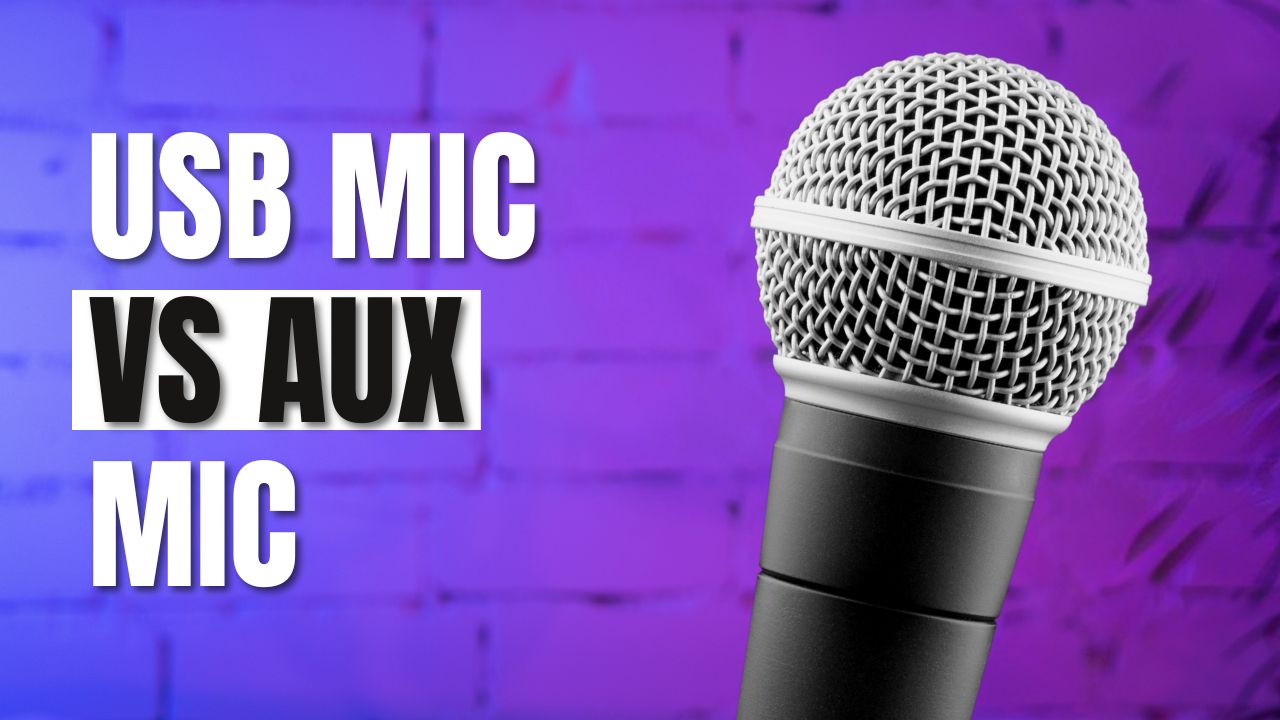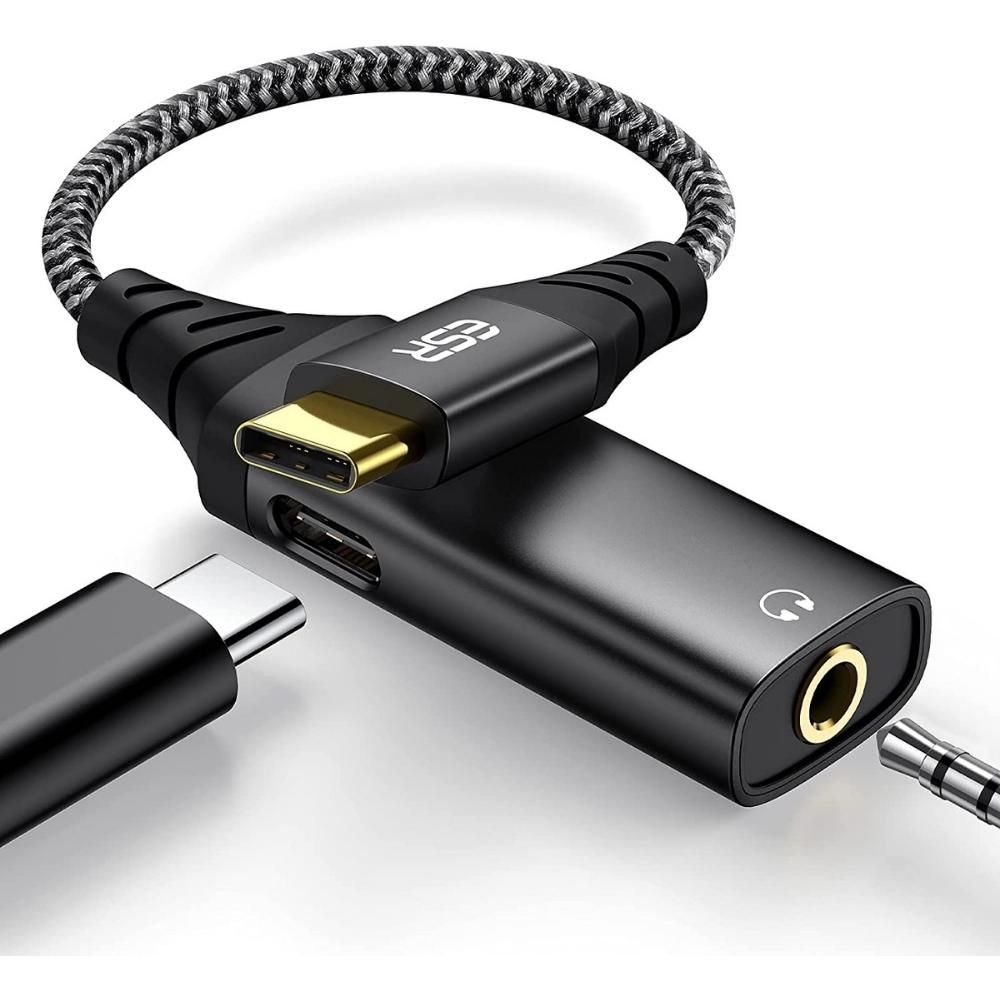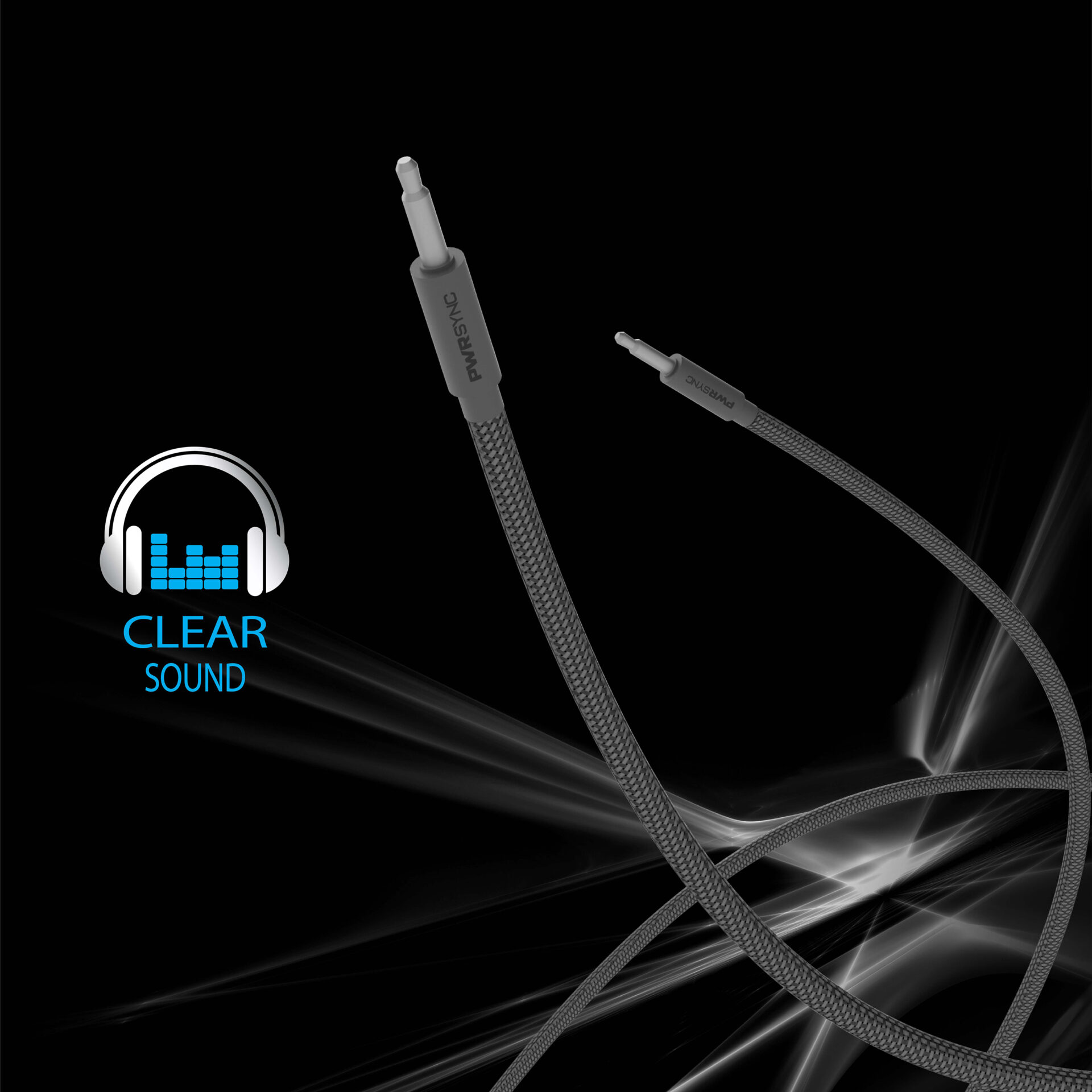Breathtaking Info About Is USB Or Aux Better For Sound

10 Best USB Headphone Adapters For HighQuality Audio 2025
USB vs. Aux
1. Understanding the Basics
Alright, lets dive into the age-old question: Is USB or Aux better for sound? It's a debate that's probably sparked more arguments than pineapple on pizza (and that's saying something!). The core difference boils down to this: Aux cables transmit audio signals in an analog format, while USB handles digital audio. Think of it like this: Aux is like a handwritten letter, direct and simple, while USB is like an email, which gets converted and processed.
Aux cables, officially known as auxiliary cables, are those familiar 3.5mm connectors weve seen on headphones, speakers, and car stereos for decades. They carry an analog signal directly from the source to the output device. Simple, right? The downside is that analog signals are more susceptible to interference and signal degradation along the way. Think of it like a game of telephone; the message might get a little garbled before it reaches the end.
USB, on the other hand, transmits audio digitally. This means the audio signal is converted into a series of 1s and 0s, transmitted through the USB cable, and then converted back into an analog signal by a digital-to-analog converter (DAC) in the receiving device. Its a more complex process, but it offers the potential for higher fidelity and less interference.
So, does digital always mean better? Not necessarily! The quality of the DAC plays a HUGE role. A cheap DAC can make even the best digital source sound well, not so great. Its like having a super-fast internet connection but using a potato as your router. The potential is there, but the execution falls flat.

ANDTOBO USB To Aux Audio Adapter, 3.5mm Male Female
Delving Deeper
2. DACs and Signal Processing
The quality of the digital-to-analog converter (DAC) is the unsung hero (or villain) in the USB audio story. If your device has a crummy DAC, it doesnt matter how pristine your digital audio file is; the resulting sound will be subpar. Many modern smartphones and computers have decent built-in DACs, but audiophiles often invest in external DACs for a noticeable improvement in sound quality. These external DACs are like having a dedicated sound engineer processing your audio before it hits your ears.
Another factor to consider is signal processing. Some devices apply digital signal processing (DSP) to the audio signal, which can alter the sound in various ways, sometimes for the better, sometimes for the worse. EQ settings, sound enhancements, and other DSP effects can all impact the final sound. Some people love these enhancements; others prefer a purer, unaltered sound. It really comes down to personal preference.
With Aux, the source device is responsible for the analog conversion. Using USB, you can bypass the potentially lower-quality DAC in your source device (like your phone) and use a higher-quality external DAC. In this scenario, USB will almost certainly sound better. However, if you're connecting to a system where the Aux input uses a good quality amp, the differences are less noticeable.
Let's not forget about the cable itself! While a super-expensive USB cable might look impressive, the actual impact on sound quality is often negligible, especially for short distances. A well-shielded cable can help minimize interference, but spending hundreds of dollars on a cable is generally overkill. The same goes for Aux cables. A decent quality, well-shielded Aux cable will do the job just fine.

USB Mic Vs Aux Which One Is Better For Your Needs?
The Case for USB
3. Digital Advantages
USB offers a significant advantage in terms of noise and interference. Because the audio signal is transmitted digitally, it's less susceptible to the kinds of interference that can plague analog signals. Think of static electricity or radio frequencies messing with your tunes. USB offers a cleaner, more pristine signal transmission.
Moreover, USB often allows for greater control over the audio signal. With USB, you can often adjust the bit depth and sample rate, which are crucial factors in determining the quality of the audio. Higher bit depth and sample rate generally result in a more detailed and accurate sound. It's like zooming in on a picture; the more detail you have, the clearer the image becomes.
Also, many USB audio devices support advanced features like ASIO (Audio Stream Input/Output), which allows for lower latency and better performance, especially important for musicians and audio professionals. This is because ASIO provides a direct pathway between audio software and the sound card, bypassing the operating system's audio mixer. It's like having a VIP lane at a concert; you get to skip the lines and get straight to the music.
However, it's important to note that USB audio isn't always plug-and-play. Sometimes, you might need to install drivers or configure settings to get it working properly. This can be a bit of a hassle, especially for less tech-savvy users. With Aux, it's usually just a matter of plugging it in and hitting play. Simple as that!

The Best Aux To USB C Adaptors And Cables Reviewed
The Enduring Appeal of Aux
4. Analog's Strengths
Despite the technological advantages of USB, Aux still holds a special place in our hearts (and our cars!). Its main strength lies in its simplicity and universal compatibility. Almost every audio device has an Aux input, from vintage stereos to modern smartphones. It's a reliable, no-fuss connection that just works.
Aux is also incredibly easy to use. There are no drivers to install, no settings to configure. Just plug it in and you're good to go. This makes it a great option for situations where you just need a quick and easy way to connect your audio devices. Think road trips, impromptu jam sessions, or connecting your phone to an older sound system.
Furthermore, Aux cables are generally cheaper and more readily available than USB audio devices. You can find them at any electronics store, gas station, or even vending machine. They're a dime a dozen, which makes them a practical choice for everyday use.
One thing to remember about Aux is that the quality of the cable matters. A cheap, poorly shielded Aux cable can introduce noise and interference into the audio signal. It's always a good idea to invest in a decent quality Aux cable to ensure the best possible sound. However, you don't need to spend a fortune. A mid-range cable from a reputable brand will usually suffice.

USB To 3.5mm Jack Audio Adapter Aux Cable For Car AUX 2.0 Female
So, Is USB or Aux "Better"? The Verdict
5. It Depends! Context is Key
Honestly, there's no definitive "winner" in the USB vs. Aux debate. The best option depends entirely on your specific needs and circumstances. If you're looking for the absolute highest possible sound quality and have a good DAC in your system, USB is generally the way to go. It offers cleaner signal transmission and more control over the audio signal. If you just need a simple, reliable connection and aren't overly concerned about audiophile-level sound quality, Aux is perfectly fine. It's convenient, compatible, and easy to use.
Consider your equipment too. Do you have an older car stereo with only an Aux input? Then the choice is already made for you! Are you connecting to a high-end audio system with a dedicated DAC? Then USB is likely the better option. Think of it like choosing the right tool for the job. A hammer is great for driving nails, but it's not the best tool for cutting wood. Similarly, USB and Aux each have their strengths and weaknesses, and the best choice depends on the task at hand.
Ultimately, the best way to decide is to experiment and listen for yourself. Try connecting your devices using both USB and Aux, and see if you can hear a difference. If you can't, then there's no need to stress over it! Just use whichever connection is most convenient. Trust your ears! They're the ultimate judge.
Don't get caught up in the hype or the marketing jargon. Focus on what sounds good to you. Audio is a subjective experience, and what sounds great to one person might sound terrible to another. So, crank up your favorite tunes, experiment with different connections, and find what works best for your ears and your equipment. Happy listening!

Buying Guide AUX Cables
FAQs
6. Everything you need to know!
Here are some frequently asked questions to further clarify the USB vs. Aux sound quality debate:
Q: Does a more expensive Aux cable actually make a difference?A: A well-shielded Aux cable can minimize interference, but spending a fortune on a cable is generally unnecessary. A mid-range cable from a reputable brand will usually suffice.
Q: Can I use a USB-to-Aux adapter to improve sound quality?A: A USB-to-Aux adapter doesnt magically improve sound quality. It essentially uses the DAC built into the adapter itself. It might be better than a really bad onboard DAC, but an external DAC will always be superior.
Q: Is Bluetooth audio better than Aux or USB?A: Bluetooth audio introduces compression, which can degrade sound quality. USB or Aux are typically better if you want the highest fidelity, uncompressed audio. Bluetooth technology is improving, but wired connections are usually better.